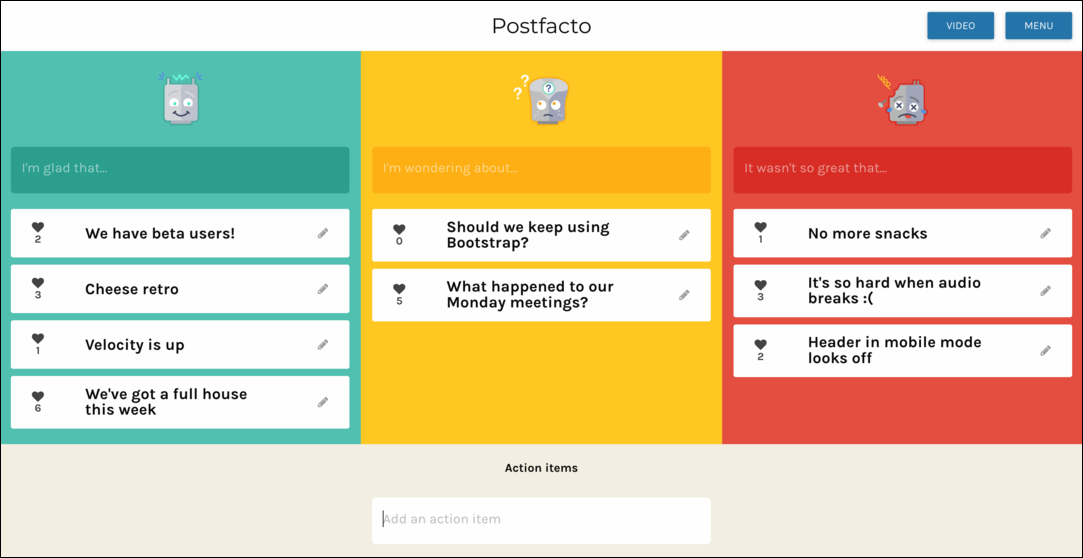Postfacto is a free, open-source and self-hosted retro tool aimed at helping remote teams.
Postfacto was created by Pivotal Labs by a team in their Sydney office. It was originally available as a hosted SAAS product at postfacto.io but has since been open sourced and focused on being a self hosted product. Postfacto is made up of a React web app and a Ruby on Rails API that provides an API for the front end.
Download the latest release and follow the included instructions on deploying your own instance of Postfacto.
Postfacto lets you run an agile retrospective even when your team is distributed across the world.
Retros are designed to help the team improve and that's hard to do without keeping track of the actions the team needs to carry out and the also the one's you've achieved. Postfacto tracks the items you enter week to week to help you keep on top of them.
You can create private retro boards for your team that are password protected or choose to leave them public so that anyone you give the link to can access it. You can also let users sign up to your instance using Google OAuth or control access with the admin dashboard.
You can deploy your own Postfacto to Pivotal Web Services, Pivotal Cloud Foundry or Heroku and stay in control of your own data.
Postfacto's code and design is hosted on Github. See our Contributing Guide for more info.
Postfacto is licensed under the GNU Affero General Public License (often referred to as AGPL-3.0). The full text of the license is available here. It's important to note that this license allows you to deploy an instance of Postfacto for private, public or internal use.
